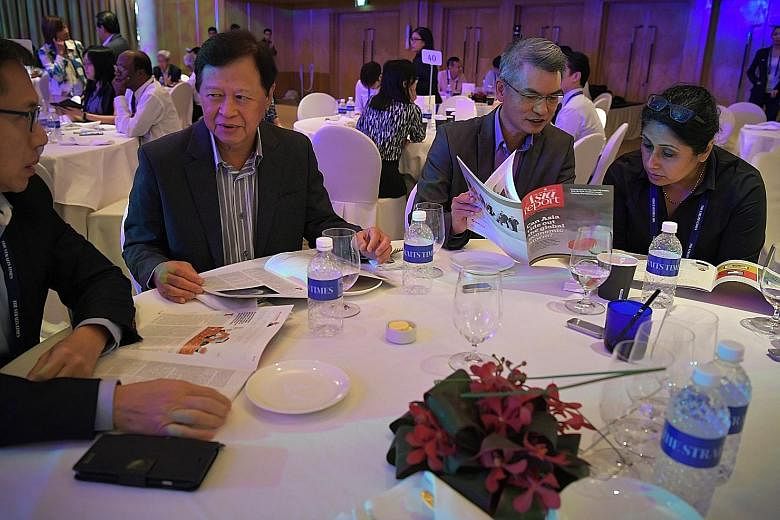After a bitterly fought presidential race and having lost the popular vote in the election, US President-elect Donald Trump will find it hard to unify America, said The Straits Times' US bureau chief Jeremy Au Yong at the ST Global Outlook Forum.
"If you look at the past three or four presidents, regardless of what their popular vote was, they've entered office with an approval rating of somewhere between 60 per cent and 70 per cent, and people always seemed to be able to come back together," he said at the annual forum in the Ritz-Carlton Hotel, where experts gauged the impact of the incoming administration in the United States and in China and India.
The forum was organised by The Straits Times and presented by OCBC Premier Banking, with Mercedes-Benz as a partner.
Mr Trump's approval rating was 42 per cent, the lowest for an incoming president since Gallup began its polls in 1945.
The election does not necessarily represent a lurch to the right or a repudiation of the Obama years.
Mr Au Yong noted that marijuana legalisation and minimum wage laws - the hallmarks of liberals - have been passed in many states, including those that heavily favoured Mr Trump.
As for China, Beijing is likely to be cautious in how it deals with a Trump administration, said Professor Wang Gungwu, who chairs the East Asian Institute and the Lee Kuan Yew School of Public Policy at the National University of Singapore (NUS).
"I don't think they have clear expectations about whether Trump is a big businessman, or better for doing deals. I don't think it's as simple as that," said Prof Wang.
"They realise that they're dealing with a very unpredictable personality, with the kind of political support which comes from things which I don't think the Chinese leaders appreciate, or really want to see ever."
On its end, India is likely to closely monitor how the Trump administration will interact with Silicon Valley, given his anti-immigration stance during the campaign.
Professor Subrata K. Mitra noted that one of India's key revenue streams is in export of software and its software specialists, and much of this is with the US through H-1B non-immigrant visas.
But Mr Trump has stated his opposition to the use of these visas, which allow skilled immigrants to pursue careers at technology companies in the US.
"What Trump is saying is... that some jobs have to be kept for local people, so the United States is going to be much more selective in letting in foreign workers," said Prof Mitra, director of the Institute of South Asian Studies at NUS.
"Which is why India has to be careful in terms of welcoming a Donald Trump presidency as an unmixed blessing," he added.
Asked what Mr Trump's first big test will be, Mr Au Yong said it is likely to be a domestic one in the form of a terrorist attack, and that the world will be watching how he responds, and if he can bring Americans together in such a time.


